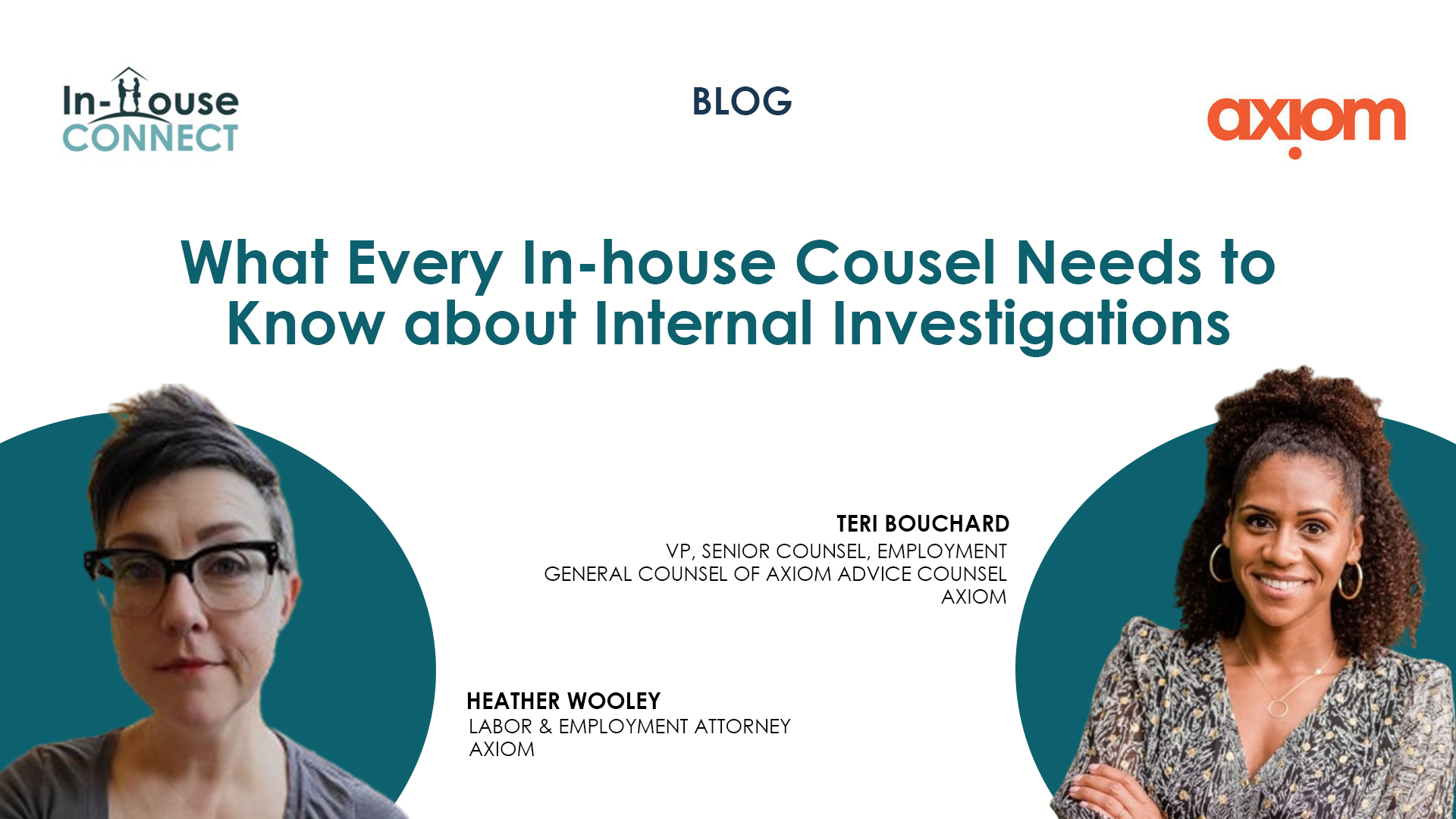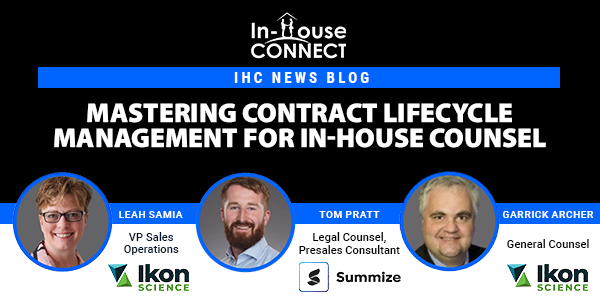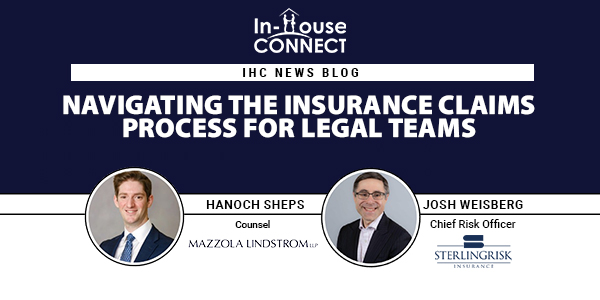In a recent webinar hosted by In-House Connect, a panel of legal experts David Ackert (Founder + CEO of PipelinePlus), moderates a panel of in-house and outside counsel, featuring Catherine Zinn (Chief Client Officer, Baker Botts), Mariana Loose (Alston & Bird), Kris Ashman(General Counsel, Bearcom), Marty Chao (Senior Corporate Counsel, Shein) and Pia Thomson (Founder + Fractional GC, LawsomeGC) explored how to cultivate successful partnerships between in-house and outside counsel. The session was packed with actionable insights that can help strengthen these critical relationships.
Here are the top five takeaways from the discussion:
1. Responsiveness Is Critical
Responsiveness is the cornerstone of any successful partnership between in-house and outside counsel. The panelists emphasized that acknowledging emails within 2-4 hours helps to maintain trust and avoid client concerns. Setting clear expectations for communication styles and response times upfront is crucial to sustaining a productive relationship. Being readily available creates a sense of reliability and professionalism.
2. Informal Check-ins Over Formal Feedback
When it comes to client feedback, informal check-ins beat formal requests. Panelists suggested quarterly one-on-one meetings as a key method for gathering input without the formality. These informal discussions foster open communication and allow for real-time feedback, helping outside counsel align with the client’s needs more effectively. Active listening was highlighted as a core skill during these sessions, ensuring feedback is heard and acted upon.
3. Build Relationships Before Legal Needs Arise
The importance of cultivating relationships before legal issues arise was a recurring theme. Building strong connections early makes outside counsel indispensable when the need does arise. By filling gaps in the organization and showing genuine interest in the client’s success, outside counsel can become a trusted resource long before any formal collaboration begins. The panel advised proactively expanding networks and nurturing relationships to create a solid foundation for future work.
4. Tailor Services to Client Needs
Understanding the specific needs, budgets, and preferences of your client is essential to delivering exceptional service. Open conversations around alternative fee arrangements (AFAs) and bespoke service offerings help align outside counsel’s work with the client’s goals. Panelists also stressed that recognizing outside counsel as an extension of the internal team fosters a more cohesive working environment, leading to greater appreciation and collaboration.
5. Effective Communication and Relationship-Building Are Non-Negotiable
Unprompted, regular communication is vital to sustaining high-value partnerships. Panelists advised that this communication shouldn’t always be about work; genuine connections, whether through thoughtful gestures or informal catch-ups, are equally important. Frequency, relevance, and tone should be balanced with the client’s preferences, but maintaining consistent and meaningful interactions was seen as key to long-term partnership success.
Legal professionals who prioritize these elements can foster high-value partnerships that not only drive business success but also create lasting professional relationships.
Missed The Webinar? You can watch it now via IHC On-Demand!







